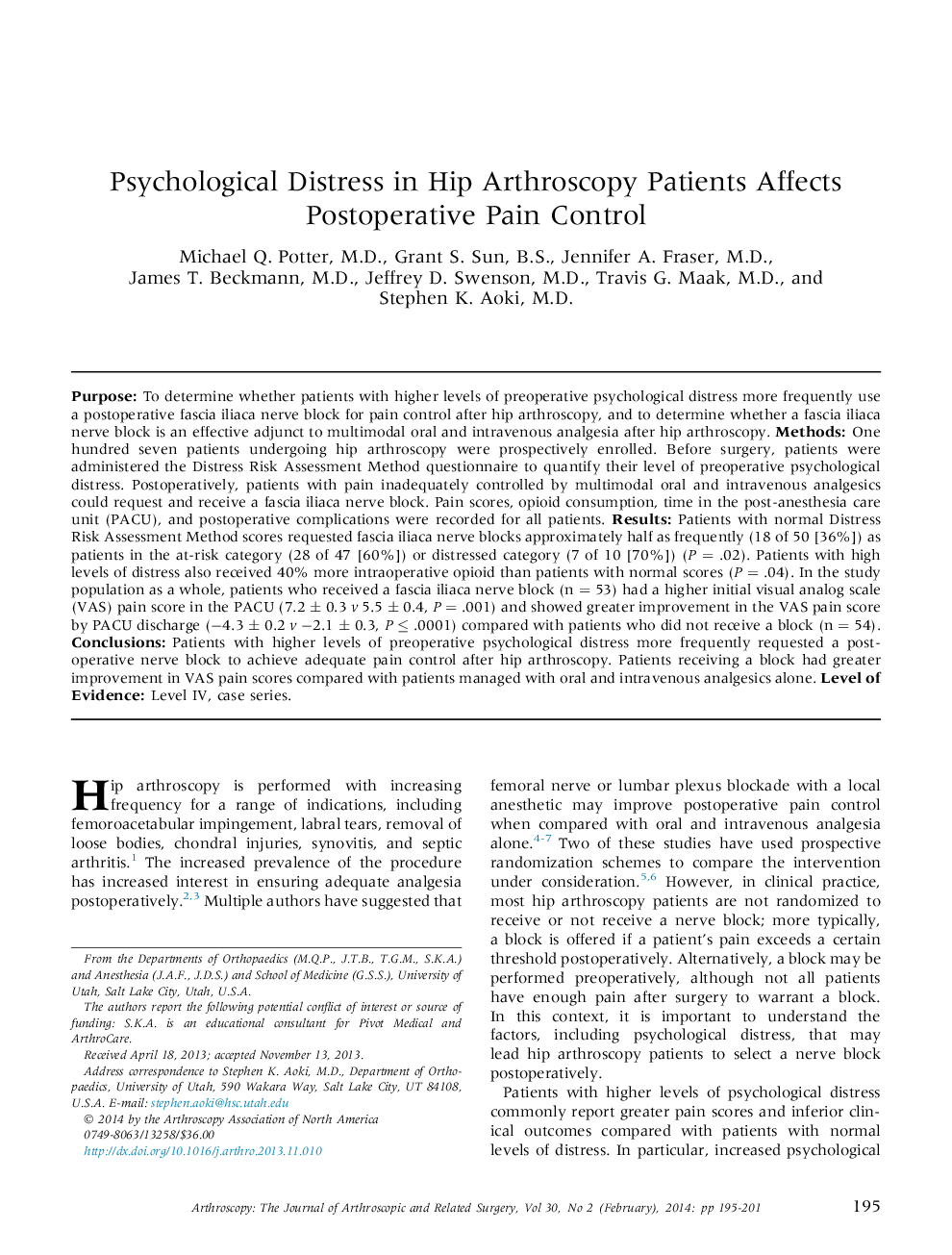| کد مقاله | کد نشریه | سال انتشار | مقاله انگلیسی | نسخه تمام متن |
|---|---|---|---|---|
| 4043080 | 1603500 | 2014 | 7 صفحه PDF | دانلود رایگان |
PurposeTo determine whether patients with higher levels of preoperative psychological distress more frequently use a postoperative fascia iliaca nerve block for pain control after hip arthroscopy, and to determine whether a fascia iliaca nerve block is an effective adjunct to multimodal oral and intravenous analgesia after hip arthroscopy.MethodsOne hundred seven patients undergoing hip arthroscopy were prospectively enrolled. Before surgery, patients were administered the Distress Risk Assessment Method questionnaire to quantify their level of preoperative psychological distress. Postoperatively, patients with pain inadequately controlled by multimodal oral and intravenous analgesics could request and receive a fascia iliaca nerve block. Pain scores, opioid consumption, time in the post-anesthesia care unit (PACU), and postoperative complications were recorded for all patients.ResultsPatients with normal Distress Risk Assessment Method scores requested fascia iliaca nerve blocks approximately half as frequently (18 of 50 [36%]) as patients in the at-risk category (28 of 47 [60%]) or distressed category (7 of 10 [70%]) (P = .02). Patients with high levels of distress also received 40% more intraoperative opioid than patients with normal scores (P = .04). In the study population as a whole, patients who received a fascia iliaca nerve block (n = 53) had a higher initial visual analog scale (VAS) pain score in the PACU (7.2 ± 0.3 v 5.5 ± 0.4, P = .001) and showed greater improvement in the VAS pain score by PACU discharge (−4.3 ± 0.2 v −2.1 ± 0.3, P ≤ .0001) compared with patients who did not receive a block (n = 54).ConclusionsPatients with higher levels of preoperative psychological distress more frequently requested a postoperative nerve block to achieve adequate pain control after hip arthroscopy. Patients receiving a block had greater improvement in VAS pain scores compared with patients managed with oral and intravenous analgesics alone.Level of EvidenceLevel IV, case series.
Journal: Arthroscopy: The Journal of Arthroscopic & Related Surgery - Volume 30, Issue 2, February 2014, Pages 195–201
